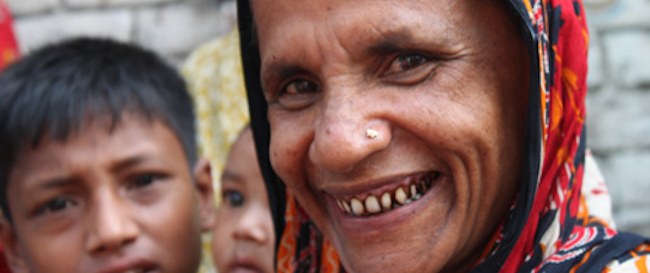Engendering Census and National Plans

UN Women has a comparative advantage in improving the visibility of women in national accounting systems.
For almost two decades it has been providing technical support to a number of countries in the South Asia region (India, Maldives, Nepal and Pakistan) to make women’s work visible and enable a more accurate reflection of women’s contributions and productivity in national accounting systems. UN Women works with Governments, UN agencies, statistical organizations, research institutions and NGOs, to make census exercises more gender-responsive.
In India, UNIFEM’s (now UN Women) partnership with the Office of the Registrar General on India (ORGI) goes back to the 1991 Census, when UNIFEM (now UN Women) and UNFPA, women’s organizations and the then Department of Women and Child Development and now Ministry (DWCD, Ministry of Human Resources Development, and Government of India) came together to better capture female economic activity in the national statistical data.
In 2001, the census organization addressed this issue by taking a number of new initiatives for better recording of female statistics in enumeration. These efforts showed encouraging results. The 2001 census recorded appreciable increase in female work participation in intervention districts and overall sex ratio also registered an increase during 1991-2001. The 2001 census positive results reinforced the fact that the tempo built towards engendering the system in India needs to be continued and strengthened for sustained impact to collect and disseminate accurate gender disaggregated data.
The UN organization is committed to this process and is associated with ORGI in their endeavor for the 2011 Census. On 24th November 2008, UNIFEM (now UN Women) was one of the four agencies – with UNFPA, UNICEF and UNDP – who signed the MoU with the RGI. (Link to the cover page of the MoU in PDF if it is uploaded) The total project cost is $2,261,000, with UNIFEM’s contribution being $100,000. It is supporting the gender aspects of the Census, which include technical expertise, special gender sensitive training and development of publicity materials.
UNIFEM (now UN Women) is seeking to:
- Facilitate improved counting of population in the country, including those of the girl child and elderly females;
- Facilitate identification and improved counting of houseless, institutional, slum population and female headed households;
- Direct special focus on women’s work, particularly the work of women home-based workers both in formal and informal sectors, in order to net a better reflection of women’s contributions in the national accounting system.
UNIFEM (now UN Women) support
As a part of UN support, UNIFEM (now UN Women) is providing the services of a Gender Consultant to the ORGI, to support, coordinate and oversee gender activities in the Census organization. The Gender Consultant, who came on board in June 2009, is working with the ORGI to facilitate the engendering of the exercise and is associated with the entire process, including pre-census activities.
The work done so far:
- Census questions have been pre-tested;
- Gender sensitivity in the Manual of Instructions for use in the training of 2.5 million Census enumerators & supervisors for Phase I [House Listing] of the Census has been improved;
- Inputs have been made and accepted for the National Population Register [NPR] Manual of Instructions;
- Gender gaps in data on key population characteristics & stereotypes & factors influencing data collection have been identified for the first phase and suggestions made for the way forward;
- The publicity campaign to generate awareness on female work including home-based & unpaid work has been positively impacted;
- The need for integration of gender in training & preparation of modules has been emphasized to the agency being contracted for training.
The first phase of the Census House Listing along with National Population Register will commence in April 2010. It will be completed by September 2010 in different states and UTs in a phased manner, as per the calendar finalized. The population enumeration period will be during February-March 2011.